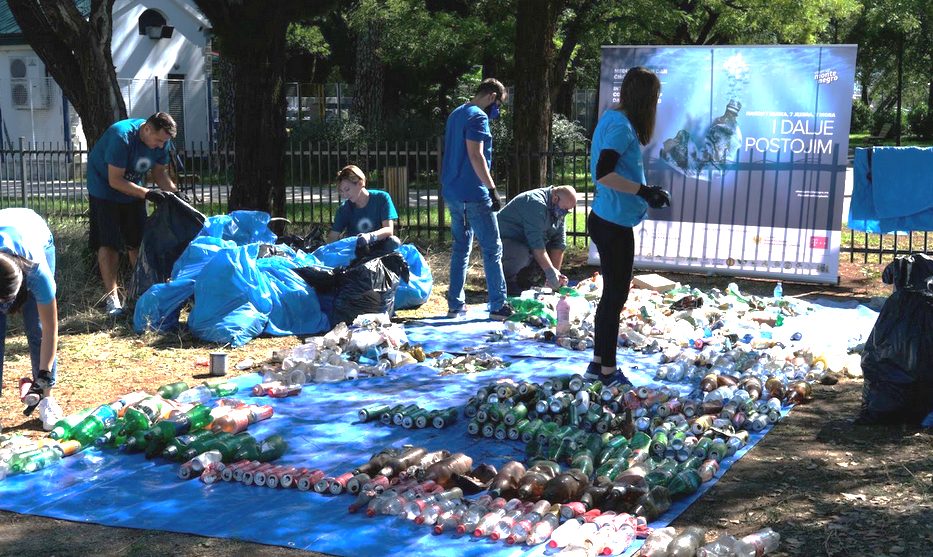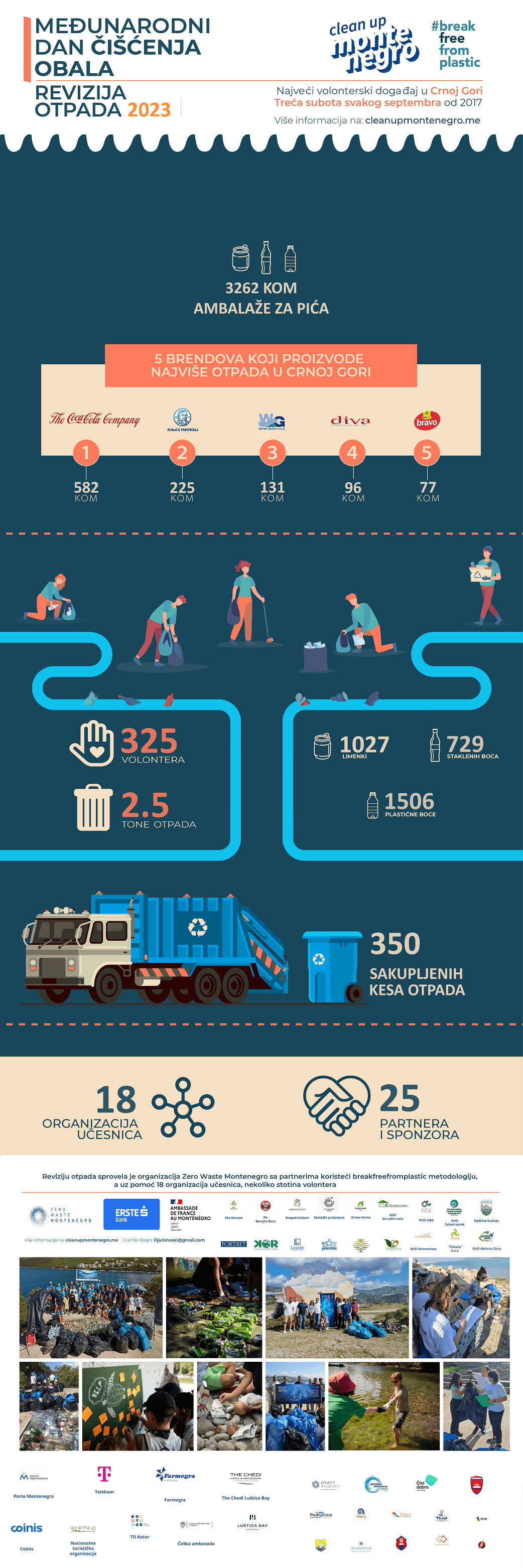Brand audits involve local communities, volunteers, and environmental organizations collecting and categorizing plastic waste to identify the brands responsible for generating this waste. These initiatives aim to hold corporations accountable for their contributions to plastic pollution.
In Montenegro, as in many other parts of the world, brand audits are organized by environmental organizations or local community groups to raise awareness about plastic pollution and advocate for more sustainable practices such as reuse.

These actions shed light on the extent of the plastic pollution problem in the country, encourage responsible consumer choices, and potentially put pressure on brands to adopt more eco-friendly packaging and materials. The data gathered through brand audits is used to support advocacy efforts and push for policy changes related to plastic waste management and reduction.

Activist response
In response to the persistently lacklustre corporate responses to plastic pollution, in 2022 activists worldwide have initiated a global “Trashiversary.” To commemorate the five-year reign of The Coca-Cola Company, PepsiCo, and Nestlé as top plastic polluters, activists are taking the fight directly to these corporations. They were mailing or delivering waste collected from cleanups to company headquarters, demanding immediate and substantial action. The coordinated efforts happened across various countries, targeting The Coca-Cola Company in Argentina, Bangladesh, Brazil, the Democratic Republic of the Congo, Kenya, Nigeria, South Africa, Tanzania, Togo, Uganda, the United States, and Zambia; Unilever in Indonesia, the United Kingdom, and South Africa; and PepsiCo in India and Tanzania.
For half a decade, over 200,000 volunteers across 87 countries have conducted cleanups to identify companies contributing the most plastic waste to our planet. Shockingly, The Coca-Cola Company, PepsiCo, and Nestlé consistently emerged as the worst offenders. Notably, The Coca-Cola Company led the pack, with more of its branded items collected than the combined total of the next two major polluters. In 2022, brand audits uncovered more than 31,000 Coca-Cola branded products, doubling the proportion from 2018.
While we wait for the 2023 Global Brand Audit results, the plastic pollution crisis has reached alarming proportions, and shed light on the ineffective nature of corporate voluntary commitments in mitigating the environmental impacts of these giants. This sobering reality has led to a global call for a binding solution: a Global Plastics Treaty to curtail plastic production and usage by corporations.
Voluntary Commitments vs. Reality
In 2018, the Ellen MacArthur Foundation and the United Nations Environment Programme introduced the New Plastics Economy Global Commitment. This initiative centered on a set of voluntary commitments by major fast-moving consumer goods companies, including most of the top plastic polluters, with the aim of addressing plastic pollution.
However, the Global Commitment 2022 Progress Report paints a disheartening picture. It indicates that the 2025 targets are “almost certainly” unattainable. In fact, for many of these companies, the use of plastic packaging has increased since joining the Global Commitment, underscoring how voluntary measures have failed to make a meaningful impact on plastic reduction.
Of particular concern is the fact that the top plastic polluter, The Coca-Cola Company, is a sponsor of the UN climate change conference COP27 in Egypt. This association has left environmental activists puzzled, as 99% of plastic is derived from fossil fuels, making Coca-Cola’s presence at COP27 incongruous with the conference’s environmental goals.
The glaring failure of big corporations to make meaningful progress in reducing plastic pollution despite their voluntary commitments sends a clear message. It highlights the urgency of transitioning from voluntary actions to legally binding mechanism.

